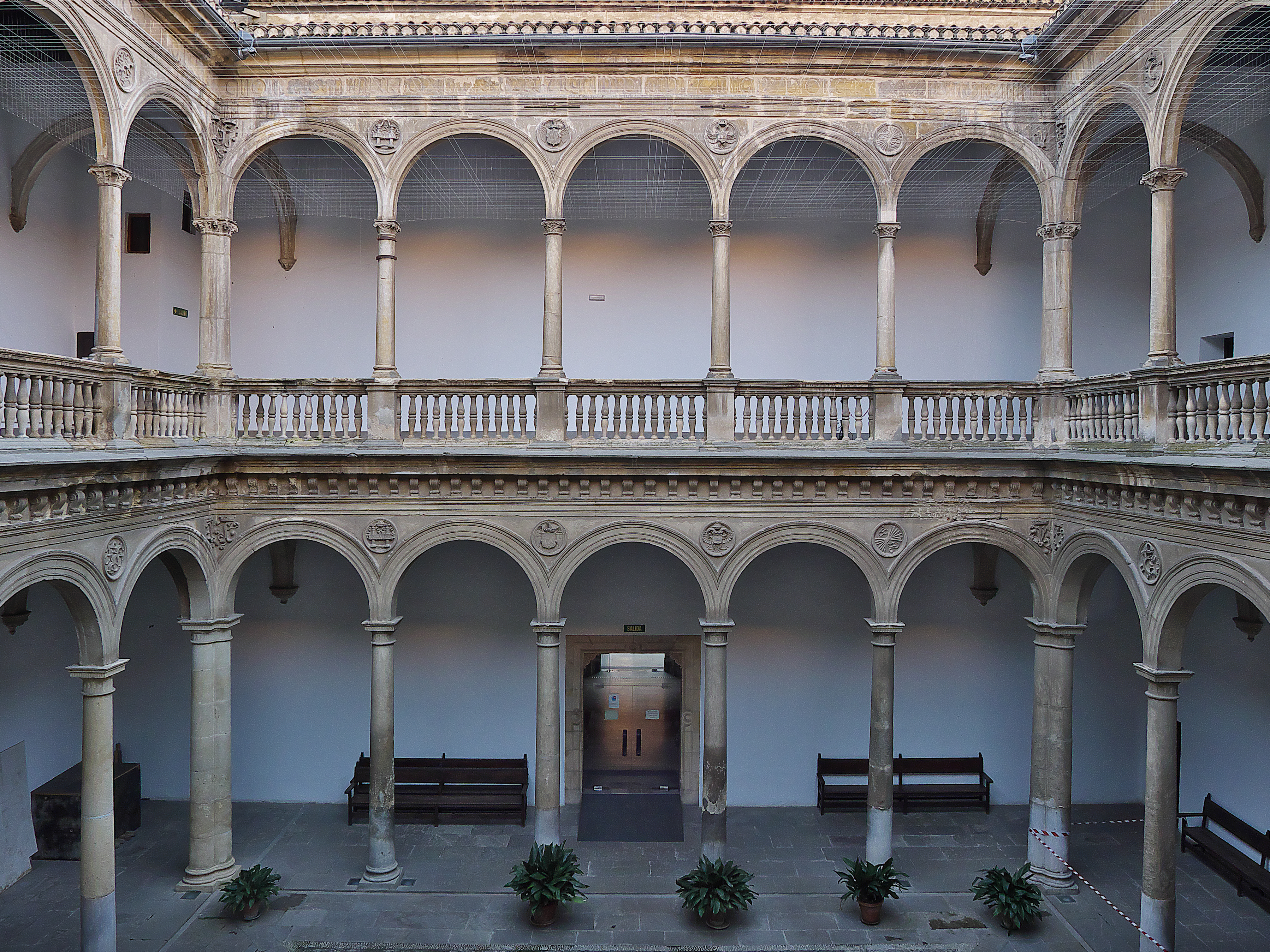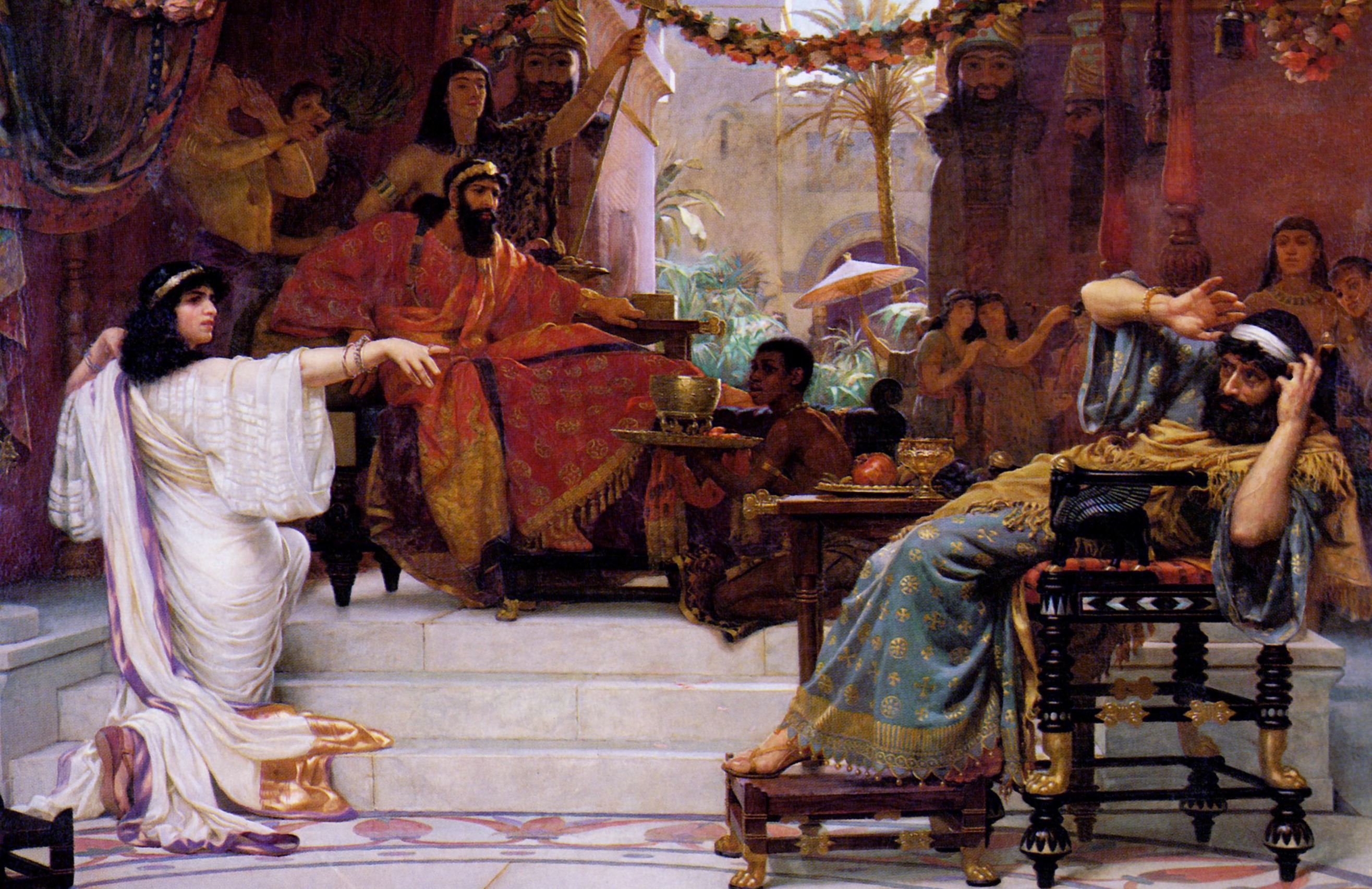|
María José Frápolli
María José Frápolli Sanz (Madrid, February 4, 1960) is a Spanish philosopher. As of 2022, she is professor of Logic and Philosophy of Science at the University of Granada. Her work is focused on the philosophy of language and the philosophy of logic. Education and career The second of five sisters, María José Frápolli was born in Madrid on February 4, 1960. Her undergraduate work was at the University of Granada The University of Granada ( es, Universidad de Granada, UGR) is a public university located in the city of Granada, Spain, and founded in 1531 by Emperor Charles V. With more than 60,000 students, it is the fourth largest university in Spain. Apar ... where she specialized in philosophy. Frápolli went on to defend a doctorate at the University of Granada in 1987 with a thesis entitled ''La matematización del infinito. La emergencia de la teoría de conjuntos en la obra de G. Cantor''. In 1992, she obtained a tenure-track faculty position, and she was promoted t ... [...More Info...] [...Related Items...] OR: [Wikipedia] [Google] [Baidu] |
Madrid
Madrid ( , ) is the capital and most populous city of Spain. The city has almost 3.4 million inhabitants and a metropolitan area population of approximately 6.7 million. It is the second-largest city in the European Union (EU), and its monocentric metropolitan area is the third-largest in the EU.United Nations Department of Economic and Social AffairWorld Urbanization Prospects (2007 revision), (United Nations, 2008), Table A.12. Data for 2007. The municipality covers geographical area. Madrid lies on the River Manzanares in the central part of the Iberian Peninsula. Capital city of both Spain (almost without interruption since 1561) and the surrounding autonomous community of Madrid (since 1983), it is also the political, economic and cultural centre of the country. The city is situated on an elevated plain about from the closest seaside location. The climate of Madrid features hot summers and cool winters. The Madrid urban agglomeration has the second-large ... [...More Info...] [...Related Items...] OR: [Wikipedia] [Google] [Baidu] |
Spain
, image_flag = Bandera de España.svg , image_coat = Escudo de España (mazonado).svg , national_motto = ''Plus ultra'' (Latin)(English: "Further Beyond") , national_anthem = (English: "Royal March") , image_map = , map_caption = , image_map2 = , capital = Madrid , coordinates = , largest_city = Madrid , languages_type = Official language , languages = Spanish language, Spanish , ethnic_groups = , ethnic_groups_year = , ethnic_groups_ref = , religion = , religion_ref = , religion_year = 2020 , demonym = , government_type = Unitary state, Unitary Parliamentary system, parliamentary constitutional monarchy , leader_title1 = Monarchy of Spain, Monarch , leader_name1 = Felipe VI , leader_title2 = Prime Minister of Spain ... [...More Info...] [...Related Items...] OR: [Wikipedia] [Google] [Baidu] |
University Of Granada
The University of Granada ( es, Universidad de Granada, UGR) is a public university located in the city of Granada, Spain, and founded in 1531 by Emperor Charles V. With more than 60,000 students, it is the fourth largest university in Spain. Apart from the city of Granada, UGR also has campuses in Ceuta and Melilla. In the academic year 2012/2013 almost 2,000 European students were enrolled in UGR through the Erasmus Programme, making it the most popular European destination. The university's Center for Modern Languages (CLM) receives over 10,000 international students each year. In 2014, UGR was voted the best Spanish university by international students. History In 1526 a college was founded in Granada by Holy Roman Emperor Charles V for the teaching of logic, philosophy, theology and canon law. On 14 July 1531, the establishment of a ''studium generale'' with the Faculty (division), faculties of theology, arts and canon law was granted by a papal bull by Pope Clement VII, C ... [...More Info...] [...Related Items...] OR: [Wikipedia] [Google] [Baidu] |
Esther Romero (philosopher)
Esther is the eponymous heroine of the Book of Esther. In the Achaemenid Empire, the Persian king Ahasuerus seeks a new wife after his queen, Vashti, is deposed for disobeying him. Hadassah, a Jewess who goes by the name of Esther, is chosen to fulfill this role due to her beauty. Ahasuerus' grand vizier, Haman, is offended by Esther's cousin and guardian, Mordecai, due to his refusal to prostrate himself before Haman. Consequently, Haman plots to have all the Jewish subjects of Persia killed, and convinces Ahasuerus to permit him to do so. However, Esther foils the plan by revealing Haman's eradication plans to Ahasuerus, who then has Haman executed and grants permission to the Jews to kill their enemies instead, as royal edicts (including the order for eradication issued by Haman) cannot be revoked under Persian law. Her story provides the traditional explanation for the Jewish holiday of Purim, celebrated on the date given in the story for when Haman's order was to go into ... [...More Info...] [...Related Items...] OR: [Wikipedia] [Google] [Baidu] |
Theoria (philosophy Journal)
''Theoria: A Swedish Journal of Philosophy and Psychology'' is a peer review, peer-reviewed academic journal publishing research in all areas of philosophy established in 1935 by Åke Petzäll (:sv:Åke Petzäll, sv). It is published quarterly by Wiley-Blackwell on behalf of Stiftelsen Theoria. The current editor-in-chief is Sven Ove Hansson. ''Theoria'' publishes articles, reviews, and shorter notes and discussions. Editors Notable articles Among the contributions to philosophy, logic, and mathematics first published in ''Theoria'' are: * Carl Gustav Hempel, Le problème de la vérité, ''Theoria'' 3, 1937, 206–244. (Hempel's paradox, Hempel's confirmation paradoxes) * Ernst Cassirer, Was ist "Subjektivismus"?, ''Theoria'' 5, 1939, 111–140. * Alf Ross, Imperatives and Logic, ''Theoria'' 7, 1941, 53–71. (Ross' deontic paradox) * Georg Henrik von Wright, The Paradoxes of Confirmation, ''Theoria'' 31, 1965, 255–274. * Per Lindström, First Order Predicate Logic with Gene ... [...More Info...] [...Related Items...] OR: [Wikipedia] [Google] [Baidu] |
Teorema (journal)
''Teorema'' is a triannual Peer review, peer-reviewed academic journal of philosophy, published in Spain. History It was established in 1971 by Manuel Garrido (*1925-†(2015) and published without interruption until 1986. ''Teorema'' also organised a significant number of conferences and symposia, on a wide variety of topics. In December 1996, ''Teorema'' resumed publication. The current editor-in-chief is Luis M. Valdés-Villanueva (University of Oviedo). Scope ''Teorema'' publishes original articles in Spanish or in English in the following areas: logic, philosophy of language, philosophical logic, philosophy of mind, Philosophy of science, philosophy and history of science, epistemology, and related areas. The journal also regularly publishes special issues on specific themes and includes a supplement, ''limbo'', a bulletin covering studies on the Anglo-Spanish philosopher Jorge Santayana. Abstracting and indexing The journal is abstracted and indexed in the Arts and ... [...More Info...] [...Related Items...] OR: [Wikipedia] [Google] [Baidu] |
Living People
Related categories * :Year of birth missing (living people) / :Year of birth unknown * :Date of birth missing (living people) / :Date of birth unknown * :Place of birth missing (living people) / :Place of birth unknown * :Year of death missing / :Year of death unknown * :Date of death missing / :Date of death unknown * :Place of death missing / :Place of death unknown * :Missing middle or first names See also * :Dead people * :Template:L, which generates this category or death years, and birth year and sort keys. : {{DEFAULTSORT:Living people 21st-century people People by status ... [...More Info...] [...Related Items...] OR: [Wikipedia] [Google] [Baidu] |
University Of Granada Alumni
A university () is an institution of higher (or tertiary) education and research which awards academic degrees in several academic disciplines. Universities typically offer both undergraduate and postgraduate programs. In the United States, the designation is reserved for colleges that have a graduate school. The word ''university'' is derived from the Latin ''universitas magistrorum et scholarium'', which roughly means "community of teachers and scholars". The first universities were created in Europe by Catholic Church monks. The University of Bologna (''Università di Bologna''), founded in 1088, is the first university in the sense of: *Being a high degree-awarding institute. *Having independence from the ecclesiastic schools, although conducted by both clergy and non-clergy. *Using the word ''universitas'' (which was coined at its foundation). *Issuing secular and non-secular degrees: grammar, rhetoric, logic, theology, canon law, notarial law.Hunt Janin: "The university in ... [...More Info...] [...Related Items...] OR: [Wikipedia] [Google] [Baidu] |
Academic Staff Of The University Of Granada
An academy (Attic Greek: Ἀκαδήμεια; Koine Greek Ἀκαδημία) is an institution of secondary or tertiary higher learning (and generally also research or honorary membership). The name traces back to Plato's school of philosophy, founded approximately 385 BC at Akademia, a sanctuary of Athena, the goddess of wisdom and skill, north of Athens, Greece. Etymology The word comes from the ''Academy'' in ancient Greece, which derives from the Athenian hero, ''Akademos''. Outside the city walls of Athens, the gymnasium was made famous by Plato as a center of learning. The sacred space, dedicated to the goddess of wisdom, Athena, had formerly been an olive grove, hence the expression "the groves of Academe". In these gardens, the philosopher Plato conversed with followers. Plato developed his sessions into a method of teaching philosophy and in 387 BC, established what is known today as the Old Academy. By extension, ''academia'' has come to mean the accumulation, dev ... [...More Info...] [...Related Items...] OR: [Wikipedia] [Google] [Baidu] |
21st-century Spanish Philosophers
The 1st century was the century spanning AD 1 ( I) through AD 100 ( C) according to the Julian calendar. It is often written as the or to distinguish it from the 1st century BC (or BCE) which preceded it. The 1st century is considered part of the Classical era, epoch, or historical period. The 1st century also saw the appearance of Christianity. During this period, Europe, North Africa and the Near East fell under increasing domination by the Roman Empire, which continued expanding, most notably conquering Britain under the emperor Claudius (AD 43). The reforms introduced by Augustus during his long reign stabilized the empire after the turmoil of the previous century's civil wars. Later in the century the Julio-Claudian dynasty, which had been founded by Augustus, came to an end with the suicide of Nero in AD 68. There followed the famous Year of Four Emperors, a brief period of civil war and instability, which was finally brought to an end by Vespasian, ninth Roman emperor, a ... [...More Info...] [...Related Items...] OR: [Wikipedia] [Google] [Baidu] |




